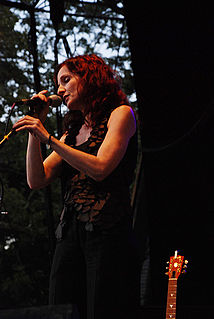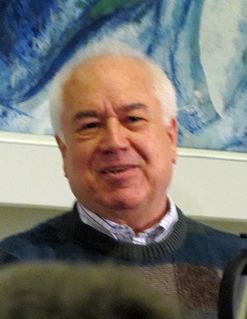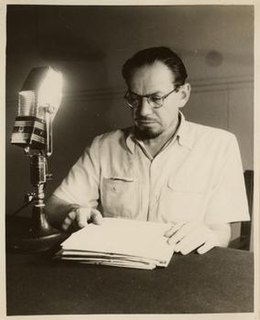A Quote by Maya Beiser
From the 9th to the 15th centuries, the area which is now modern Spain was home to the greatest peaceful agglomeration of cultures ever known in the post-literate worldEven more remarkable than the flowering of art itself was the confluence of cultures that produced it: under the rule of Islam, Muslims, Jews and Christians lived and worked together in relative harmony.
Related Quotes
Modern art to me is nothing more than the expression of contemporary aims of the age we’re living in. All cultures have had means and techniques of expressing their immediate aims – the Chinese, the Renaissance, all cultures. The thing that interests me is that today painters do not have to go to a subject matter outside of themselves. Most modern painters work from a different source, they work from within.
In the Christian world, as you remember, Christianity is in the 21st century, Islam is in the 15th century. I don't mean to say that Islam is backward; I mean to say that there are certain experiences that it hasn't gone through. Christianity had the great religious wars of the 17th century. Islam, fortunately for the Muslims, did not have that. Christianity worked out a system of toleration. Islam was always more tolerant of Christendom.
When we talk about the Judeo-Christian or the Judeo-Muslim tradition, it's important to remember that we are speaking of a Jewish component of civilization, but not in itself a civilization. What is happening now in Israel is that you have a coming together of Jews from the Christian world and Jews from the Muslim world with different cultures.
Those are big challenges in our age, not just how we live as co-citizens in societies with people of different faiths and different cultures - I mean, that's a big challenge itself - but how we think about all that as Christians, or as Jews, or as Muslims, or as Hindus. How do we think about the religious other? There's a theological dimension as well as a civic dimension to our pluralism.
When I was growing up, we often heard Islam in the form of a slogan: "Islam is the solution," but no one ever told me that Islam can be a burden... Very few Muslims write about Islam creatively because I don't think we're given permission to. I think that's the bane of modern Islam. It's been reduced to slogans.
300 years after the rise of Islam there were Zoroastrians in Iran. The Muslim armies never forced people to accept Islam. It was only within Arabia that God ordered the idolaters to have a choice of either embracing Islam or fight against Muslims, because He wanted to remove this terrible idolatry that exited there. But outside Arabia where Islam met Christians, Jews, Zoroastrians and Hindus, they were given a choice by and large. That's why many Christians and Jewish communities survived in the Muslim world, but gradually many of them embraced Islam for different reasons.
I do not feel that the West has really become less condescending toward foreign cultures than the Greeks and Romans were: it has only become more tolerant. Mind you, not toward Islam—only toward certain other Eastern cultures, which offer some sort of spiritual attraction to the spirit-hungry West and are, at the same time, too distant from the Western world-view to constitute any real challenge to its values.


































